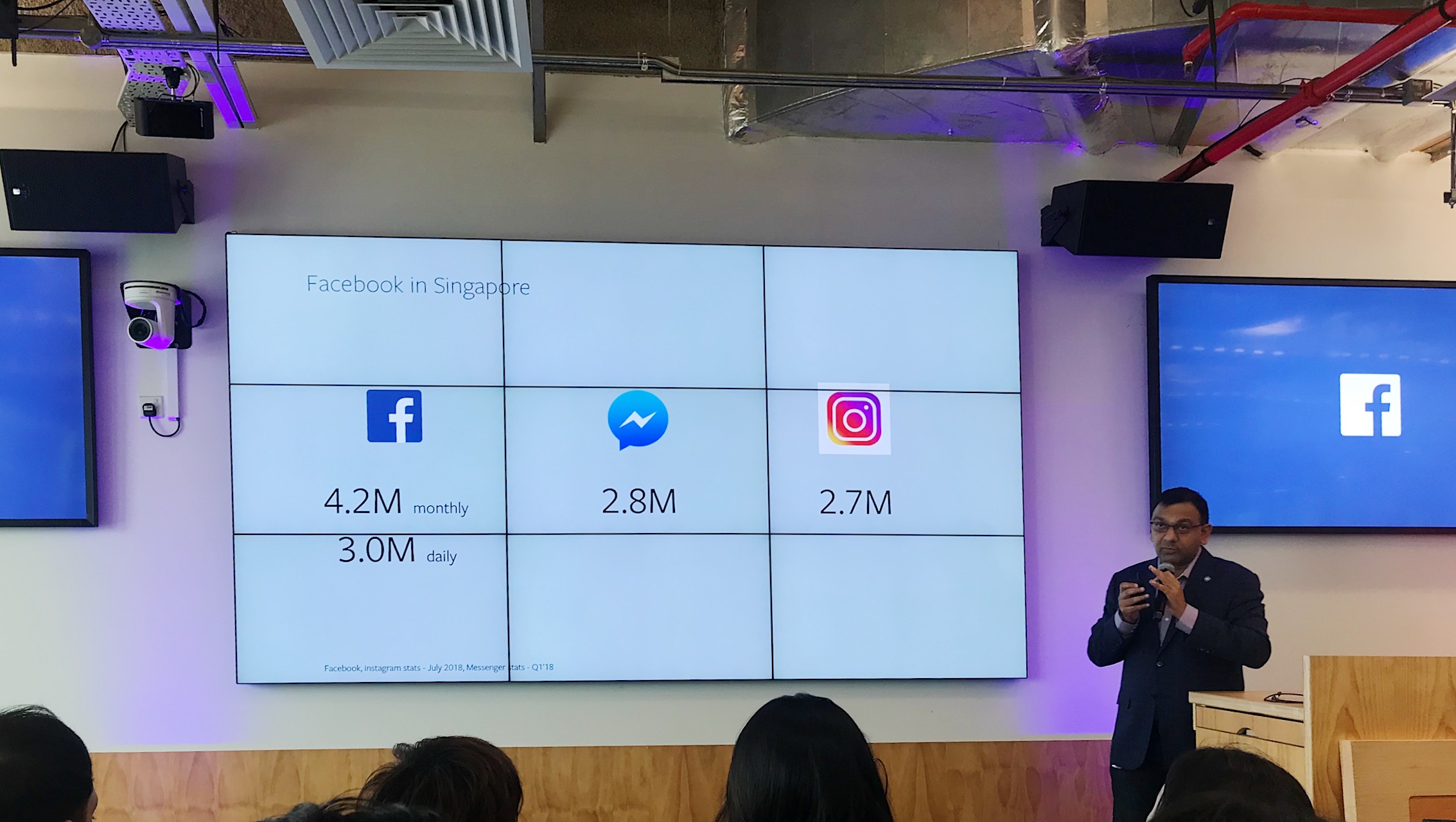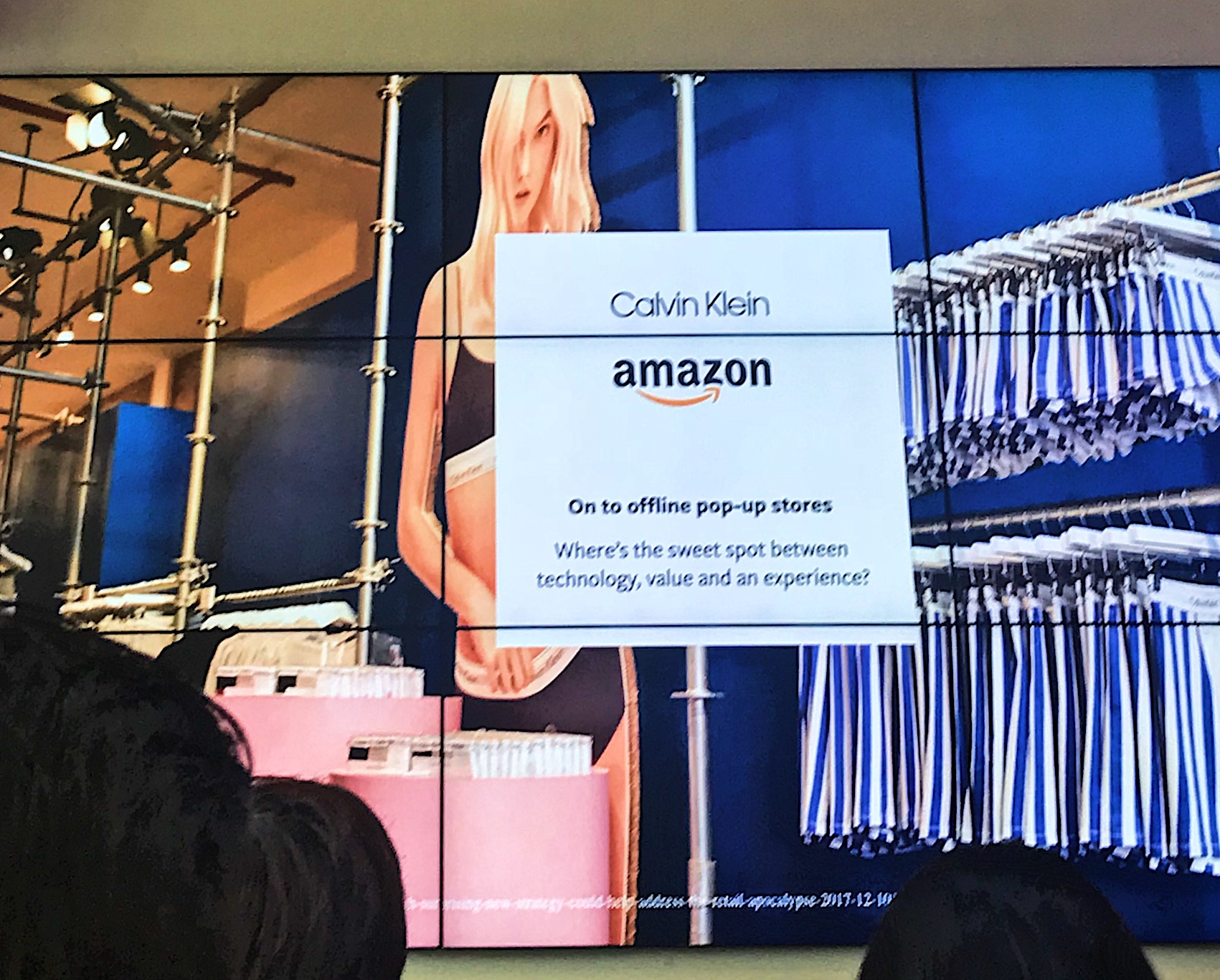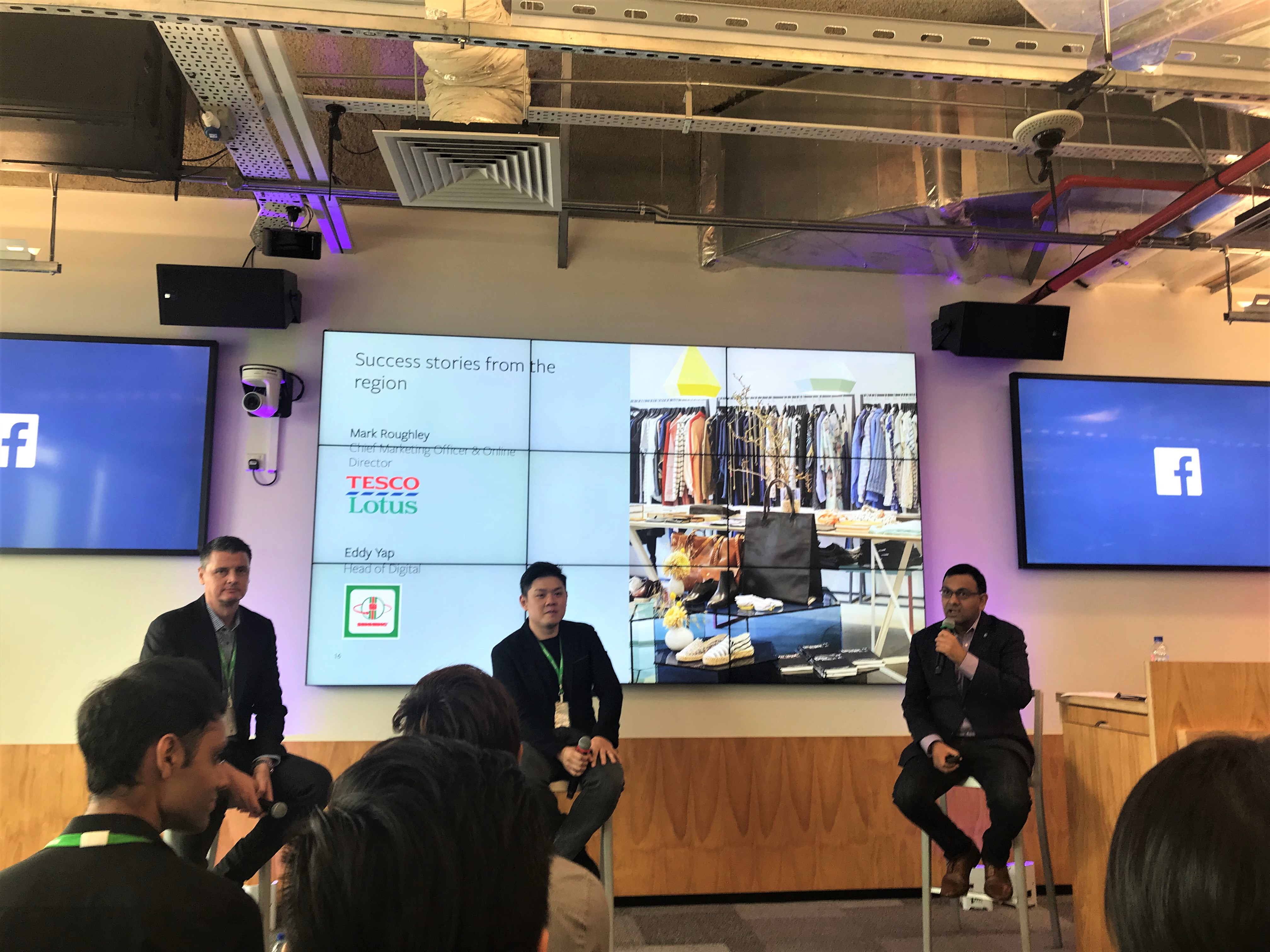The team from SKALE attended the Facebook Retail Summit in Singapore this week.
Attended by some of Singapore’s top marketers, retail brands and advertising agencies, the summit was geared to demonstrating how Facebook can help businesses increase offline sales and the various marketing solutions provided by the social media giant.

The retail summit was moderated by Facebook’s Client Partner Lead for Retail Vertical, Rahul Gupta, who shared that today Facebook in Singapore has 3 million users accessing the social media platform daily, 2.8 million accessing Messenger and 2.7 million accessing Instagram.
Themed around how mobile has redefined shopping experiences for Singaporeans, Gupta further highlighted how the retail model has transformed whereby online efforts influence offline sales and that retailers and brands should understand where consumers are spending most of their time on.
“Figure where people are spending time and that’s where you get them to purchase from your brand or get them to your store. Retailers and brands can then mobilise creatives to further drive retail behaviour,” Gupta relayed.
These points were elaborated further by Facebook’s Product Marketing Manager, Amit Bhan and Head of Creative Systems & SMB for APAC, May Seow. [restrict]

Amit described how Facebook has enabled retailers drive offline sales through tracking store visits with Facebook’s store locator ad format. This feature enables customers to gain information and take action such as purchasing directly from the store (online) without ever leaving the Facebook ecosystem.

Retailers can also utilise Facebook campaigns to track offline sales by matching in-store or offline transactions to their campaigns.

Facebook’s Head of Creative Systems & SMB for APAC, May Seow took the stage next to explain how combining the physical and digital world together can effectively help retailers to drive sales. She cited a recent collaboration between Amazon and Calvin Klein.

Facebook also introduced success stories from around the region (Southeast Asia) of long-running traditional commerce company’s that have gone through digitalisation and found success with it.

Gupta moderated a panel of two representatives, Mark Roughley, Chief Marketing Officer of Tesco Lotus (Thailand) and Eddy Yap, Head of Digital from Malaysia’s leading consumer electronics chain store, Sen Heng.
Roughley spoke of how he was determined to digitalise Tesco’s marketing efforts after realising how widespread mobile usage in Northern Thailand was. “Thai’s would only purchase a magazine or newspaper to check on lottery winning numbers. We were spending hundreds of thousands on print Ads when we should really have been investing our marketing spend into Facebook Ads,” Roughly exclaimed.
Tesco Lotus has since successfully drove store visits and in-store sales using Facebook’s with an impressive 35 times return on ad spend.
Yap reiterated how since utilising Facebook’s marketing solutions for Sen Heng to drive in-store visits, product orders had increased by 6 times, followed by increase in revenue by 5 times and an amazing 60 times return on ad spend.
Yen Ngo, Facebook’s Performance solutions manager and Client solutions manager for Vietnam and India, elaborated on how brands and retailers can get started with digitalising their marketing efforts. Retailers can kick off their digitalisation by transforming assets into mobile first digital assets while bringing that offline experience LIVE to not only involve and engage consumers but drive conversions and purchases.
Key takeaways
All in all it is evident that the retail industry in Singapore and globally is in the midst of a massive shift and consumers are more engaged online, however retail is changing but not as fast.
Consumers in Singapore spend an average of 12 hours online and are therefore more engaged online than ever before.
The future of retail is digitally influenced shopping with mobile as the primary driver.
The retail industry must take note of the shift in consumer behaviour and alter their marketing efforts to capture and engage with consumers through online channels.
Interestingly, e-commerce is steadily growing however 90% of transactions still take place in brick-and-mortar stores. Despite this, traditional retailers are seeing a decline in foot traffic.
What this essentially translates into is that retailers will need to adopt online marketing to drive visits and purchases within their offline stores. Facebook through various rounds of testing and working closely with with some of the largest retail chains in the region, has proven to drive offline sales.
When you combine offline and online, offer something exciting in bricks and mortar store that can’t be replicated online, it will be successful. – Robert Burke
[/restrict]
Interesting insights on how retailers can move on to Digital, especially when typically traditional players like Sen Heng are already actively moving on to it.